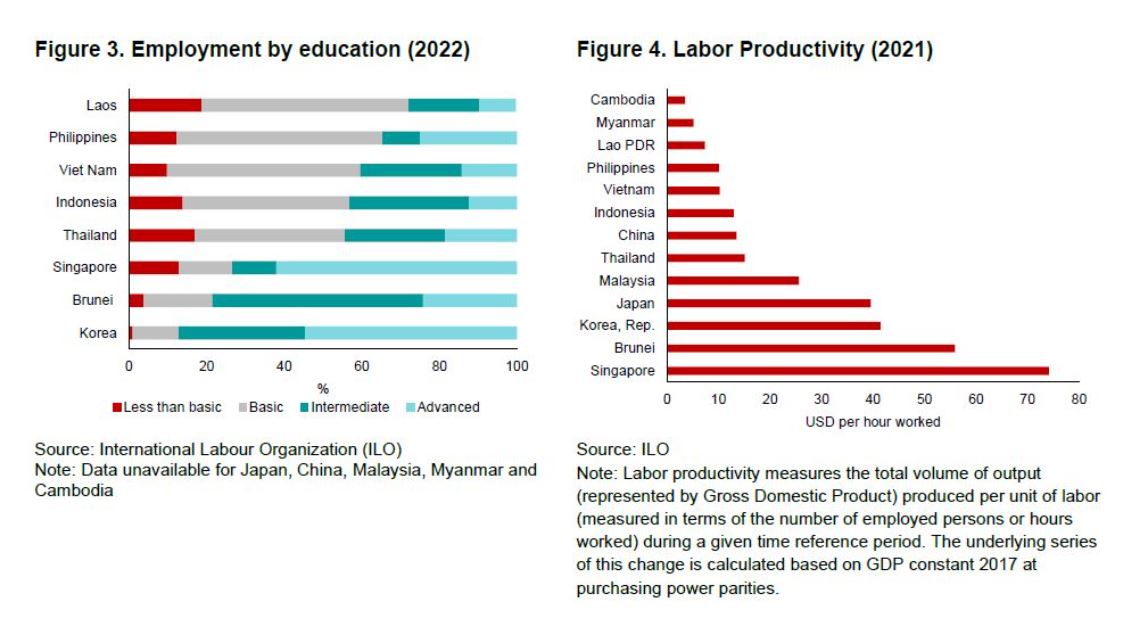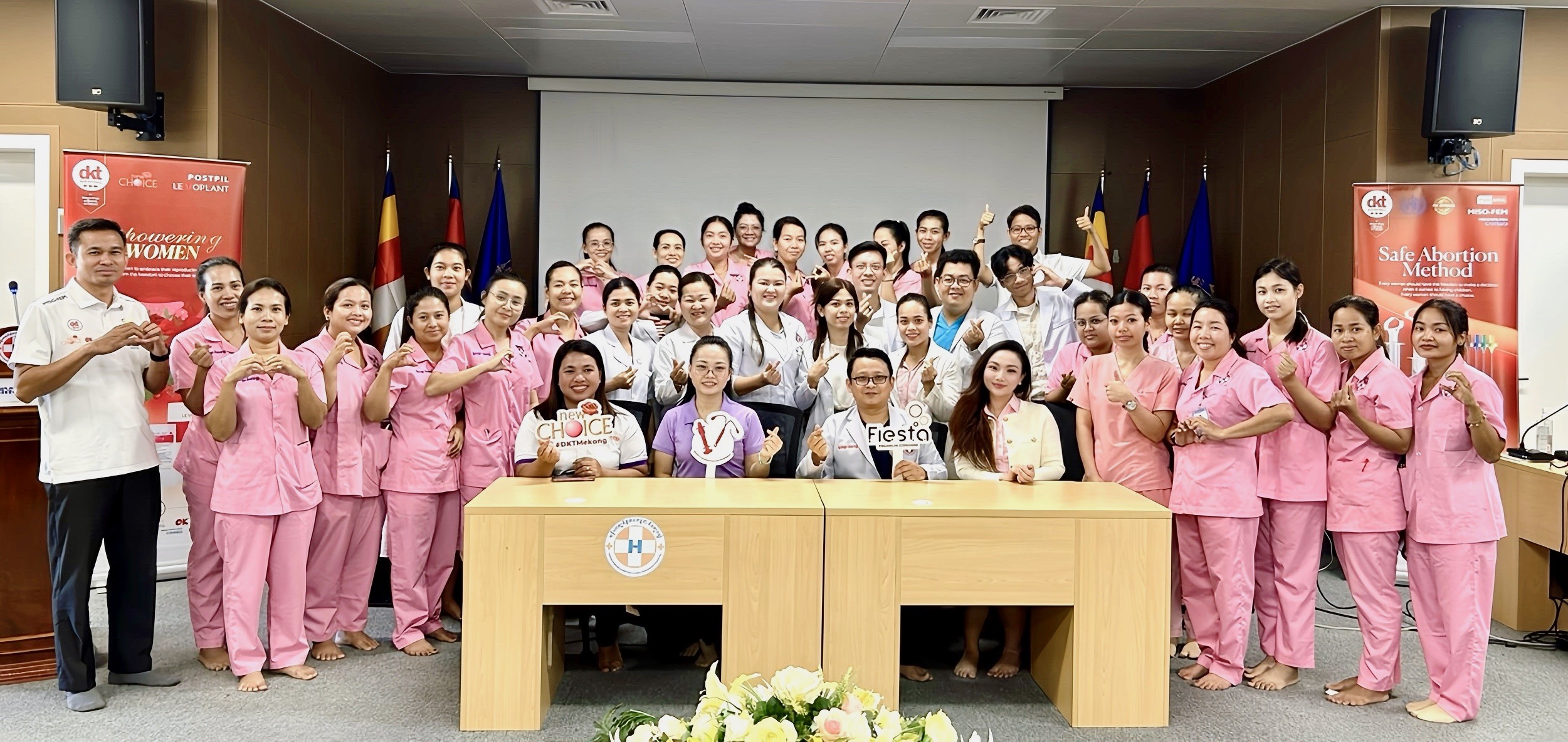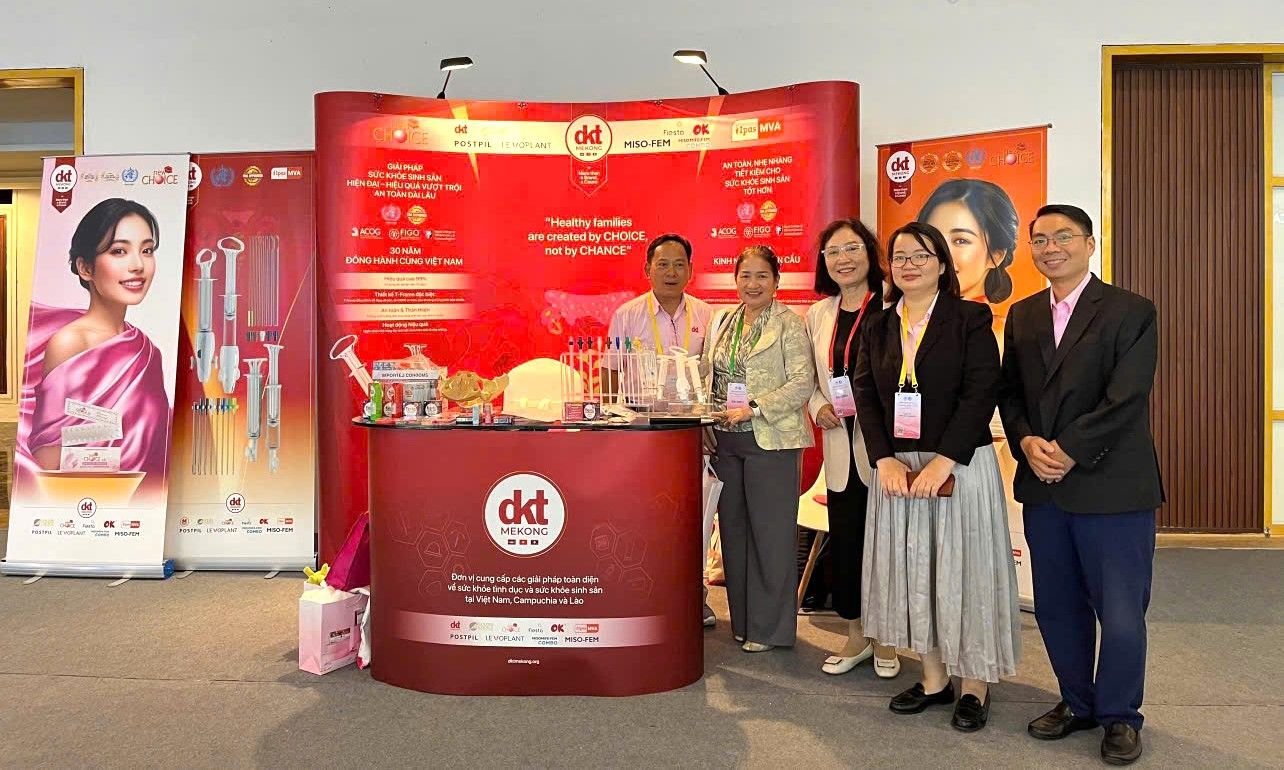From the Fear of Declining Birth Rates to the Opportunity for Rights-Based Policy Making
By Yinn Mar Phoo, DKT Mekong – Posted on
Vietnam’s “demographic anxiety” about declining fertility should not drive restrictive policies. Instead, now is the time for Vietnam to embrace reproductive autonomy, gender equality, and rights-based family planning as the foundation for sustainable economic growth and social stability. From 1999 through 2022—Vietnam’s fertility rate remained stable, consistently around the replacement rate of 2.1.
However, the last two years have seen an unexpected decline, dropping from 1.96 in 2023 to 1.91 in 2024, raising concerns about labor force sustainability, and economic productivity. Consequently, this discussion is timely, as policymakers increasingly debate effective strategies to address demographic changes without undermining individual rights.

Lessons from the “Demographic Dividend” and a Shifting Economic Landscape
Historically, Vietnam has significantly benefited from its “Golden Population Structure,” with a large working-age population fueling robust economic growth. Yet, this demographic advantage is gradually narrowing, underscoring the necessity of reassessing current policies. Past population measures, notably Vietnam’s two-child policy, influenced birth rates, particularly among rural and less-educated women. However, contemporary fertility decisions are now largely influenced by factors such as urbanization, rising living costs, changing expectations around marriage and parenthood, and evolving gender norms.
Understanding these demographic shifts requires consideration of Vietnam’s economic context. Vietnam’s economy consistently ranks among the world’s fastest-growing, sustaining an annual growth rate of nearly 7% since 1990. Driven by robust trade performance and steadily rising per capita GDP, Vietnam is emerging as a dynamic economy comparable to the renowned “Asian Tigers.” With 67.3% of the population in the working-age group, Vietnam continues to benefit from its “Golden Population Structure.” Today, over 40% of the population resides in urban areas, leading to smaller family units and higher living costs. Young professionals in cities increasingly prioritize careers and financial security, delaying marriage and childbirth.

The average age at first marriage has also risen from 24.1 years in 1999 to 27.2 years in 2023, with Ho Chi Minh City reaching 30.4. Additionally, this trend is accompanied by a rising age for first-time mothers, further contributing to declining birth rates. Biologically, fertility begins declining gradually around age 32, with a sharp decline after 37, affecting reproductive choices.
The Double Burden on Women: Balancing Motherhood and Being the Primary Breadwinner
Although Vietnam boasts high female labor force participation (88 women per 100 men), gendered caregiving roles, lower wages, and workplace biases limit women’s economic opportunities. In 2022, the employment rate for women stood at 61.1% compared to 73.1% for men, highlighting disparities in career progression and financial independence.
Additionally, a rapidly aging population places a dual burden on women, who must balance childbearing, employment, and caregiving responsibilities for elderly family members. This increasing burden contributes to higher stress levels and potential economic hardship, influencing reproductive decisions. An increase in the under-five mortality rate also poses significant challenges to maintaining a young population. Increased child mortality not only results in the tragic loss of young lives but also undermines future societal development by reducing the number of individuals contributing to economic growth and prosperity. Addressing this issue is crucial to ensure a healthy and thriving younger generation.
The Alarming Reality of Abortion and Unintended Pregnancies
Globally, approximately 73.3 million abortions occur annually, accounting for about 29% of all pregnancies and 61% of unintended pregnancies. In Southeast Asia (SEA), around 6 million abortions occur annually, with nearly half of pregnancies (around 9.27 million) being unintended. Vietnam has the second-highest abortion rate in the world, according to UN estimates, with an estimated 64 per 1,000 women of reproductive age, translating to 1.6 million abortions annually. Notably, about 40% of pregnancies in Vietnam end in abortion each year.
According to the 2016 UNFPA Vietnam report, about 17.4% of women reported they had undergone an abortion. Of these, more than half 53.6% were due to unplanned pregnancies, 8.9% resulted from contraceptive failure – attributed mainly due to a lack of knowledge on effective usage of modern contraception, especially among young people and those unfamiliar with family planning methods, 6.6% were due to insufficient income, and 1.6% were related to sex-selective abortions, contributing to the overall high abortion rates. These data underscore why restrictive reproductive measures are not just ineffective but harmful.
Therefore, addressing the root causes of declining fertility requires a comprehensive, rights-based approach rather than restrictive reproductive policies. It includes “a recognition of people’s right to decide when, if, and how many children they have.” To realize that right, all women and their partners need to be able to access quality counseling and modern contraceptive methods of their choice.
Experiences from Northern Europe demonstrate that robust support measures—including maternity/parental leave, affordable childcare, flexible work arrangements, and gender equality policies—not only stabilize birth rates but also enhance gender equality and economic productivity.
Access to Quality Contraceptives and Birth Spacing Services
Additionally, access to quality contraception and adequate birth spacing significantly improve maternal and child health, benefiting individual families and society as a whole. Indeed, restricting contraception does not encourage births; rather, it increases unintended pregnancies and unsafe abortions. Contraception empowers women and couples to carefully plan and space pregnancies, aligning their desired family size with their actual family outcomes.
Modern Contraception: Benefits for Families, Society, and Sustainable Development
Smaller families often result in improved child well-being, as parents can invest more resources in each child’s health, education, and overall quality of life. This focus on human capital development significantly benefits Vietnam’s long-term socio-economic growth. Slower population growth can also alleviate pressure on natural resources and the environment, facilitating a transition toward sustainable national development.

Access to quality contraceptive methods and birth spacing
DKT Mekong: Over 30 Years Supporting Reproductive Health in Vietnam
For over 30 years, DKT Mekong has been dedicated to improving reproductive health in Vietnam. Through social marketing initiatives and partnerships with governments and the private sector, DKT Mekong has provided 27.6 million Couple Years of Protection (CYP) — a metric used in family planning to measure the contraceptive protection provided by a method over a one-year period In 2023 alone, our efforts prevented 521,542 unintended pregnancies, 159,302 unsafe abortions, and prevented the loss of about 5,258 years of healthy life for mothers (measured in disability-adjusted life years, or DALYs), which accounts for illness, disability, or early death.
DKT Mekong is also a model for women empowerment, with 100% female department heads and nearly 70% of employees being women as a leading sexual and reproductive health (SRH) organization. We not only comply with employee rights and benefits laws but also offer additional healthcare packages for individuals and families, flexible working hours, and work-life balance initiatives. Through these efforts, DKT Mekong contributes to sustainable population growth and gender equity, ensuring that as Vietnam navigates its demographic transition, individuals can make informed reproductive choices for a healthier, more equitable society.

DKT Mekong – Hơn 30 năm đồng hành cùng sức khỏe sinh sản Việt Nam
Reproductive Rights and National Economy: An Inseparable Connection
Furthermore, restricting reproductive rights has far-reaching consequences beyond individuals, significantly impacting national economies. When women lack access to comprehensive sexual and reproductive healthcare, they face barriers to making informed decisions about their careers and family planning. Conversely, investing in reproductive rights yields substantial economic benefits.
According to a McKinsey Global Institute report, closing gender employment gaps could increase global GDP by $28 trillion, while nations prioritizing reproductive healthcare and education see gains in productivity, poverty reduction, and overall economic strength.

In conclusion, Vietnam’s declining fertility rate presents not just demographic anxiety but a valuable opportunity. Adopting a rights-based policy will empower reproductive autonomy, achieve gender equity, and foster sustainable development, positioning Vietnam confidently for a prosperous and equitable future. As Vietnam navigates these demographic changes, DKT Mekong will remain committed to supporting a future where women’s health, economic opportunities, and reproductive rights are fully upheld and accessible to all in Vietnam.
References:
- Anh P. Ngo, 2020. “Effects of Vietnam’s two-child policy on fertility, son preference, and female labor supply,” Journal of Population Economics, Springer;European Society for Population Economics, vol. 33(3), pages 751-794, July.
- Asia-Pacific Economic Cooperation. (2023). APEC Smart Families: Menu of Policy Options. APEC Health Working Group. https://www.apec.org/docs/default-source/publications/2023/10/223_hwg_apec-smart-families_menu-of-policy-options.pdf?sfvrsn=f4c8aafc_2
- General Statistics Office of Vietnam. (2021, December). Gender equality in labor and access to management work in Viet Nam. https://www.gso.gov.vn/en/data-and-statistics/2021/12/gender-equality-in-labor-and-access-to-management-work-in-viet-nam/
- General Statistics Office of Vietnam. (n.d.). Population. Retrieved from https://www.gso.gov.vn/en/population/
- Guttmacher Institute. (2014, July). Repeat Abortions Are Common in Vietnam, May Be Linked to Son Preference. https://www.guttmacher.org/journals/ipsrh/2014/07/repeat-abortions-are-common-vietnam-may-be-linked-son-preference
- Guttmacher Institute. (2020). Abortion Worldwide
- International Campaign for Women’s Right to Safe Abortion. (2023, December 8). Vietnam struggles with high abortion rates due to sex selection: “people have to rely on their sons”. https://www.safeabortionwomensright.org/news/viet-nam-vietnam-struggles-with-high-abortion-rates-due-to-sex-selection-people-have-to-rely-on-their-sons/
- Nhan Dan Online. (n.d.). Optimising the advantages of Vietnam’s golden population structure. Retrieved from https://en.nhandan.vn/optimising-the-advantages-of-vietnams-golden-population-structure-post67074.html
- Serrao, S. (2015). Population ageing and its gender dimensions: The direct and indirect impacts on women (A synthesis of literature with evidence from the Asia-Pacific region). United Nations. https://hr.un.org/sites/hr.un.org/files/Population%20ageing%20and%20its%20gender%20dimensions_0.pdf
- UNFPA Vietnam. (2023). Sexual and Reproductive Health
- United Nations Population Fund Vietnam. (n.d.). Abortion in Viet Nam: Facts and Figures. Retrieved from https://vietnam.unfpa.org/sites/default/files/pub-pdf/info3_abortion_2_pages.pdf
- VietnamNet. (2023). Vietnam’s abortion rate remains high
- Vietnam struggles with high abortion rates due to sex selection: https://www.safeabortionwomensright.org/news/viet-nam-vietnam-struggles-with-high-abortion-rates-due-to-sex-selection-people-have-to-rely-on-their-sons/
- Vietnam News. (2024, July 11). 30 years of progress: Việt Nam needs innovation to ensure population’s sustainable development. Vietnam News. https://vietnamnews.vn/society/1659012/30-years-of-progress-viet-nam-needs-innovation-to-ensure-population-s-sustainable-development.html
- VnExpress International. (2024, January 4). Gender imbalance remains high in Vietnam. https://e.vnexpress.net/news/news/gender-imbalance-remains-high-in-vietnam-4696916.html
- McKinsey Global Institute. 2015. The power of parity: How advancing women’s equality can add $12 trillion to global growth.
- World Bank. (2015). Vietnam 2035: Toward Prosperity, Creativity, Equity, and Democracy. https://documents1.worldbank.org/curated/en/647461467997250805/pdf/97714-PUB-PUBLIC-Box391451B-9781464803536.pdf
- WHO. (2020). Abortion Fact Sheet
By Yinn Mar Phoo, DKT Mekong


 Tiếng Việt
Tiếng Việt ພາສາລາວ
ພາສາລາວ ភាសាខ្មែរ
ភាសាខ្មែរ






